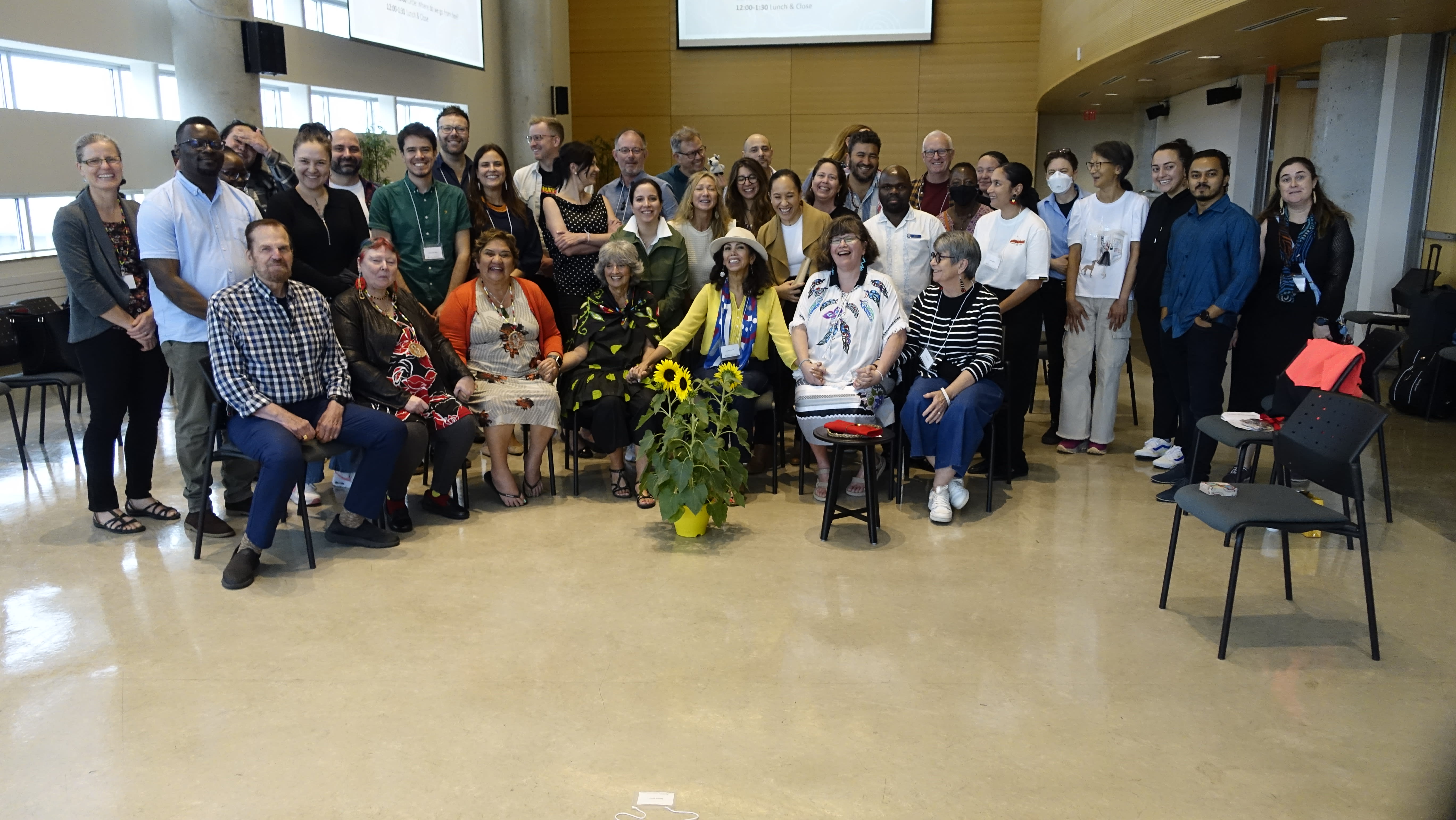Co-authored by Elizabeth Tetzlaff, Peter Vogel and Peter Jaskiewicz (bios below).
This article is republished from I by IMD. Read the original article, published November 14th, 2024.
Enterprising families are suffering from systemic mental health conditions, and their failure to acknowledge or treat them is proving to be detrimental to the family, the business, and their long-term success.
Family enterprises are the backbone of the global economy. They account for 70% of global GDP and are thought to manage more than $10tn annually. Leaders of these businesses are often disruptors and innovators, passionate about sustaining a legacy for future generations while leading the markets they serve. Despite this, they are lagging in their approach to mental health, and it is having a detrimental impact on their families, their businesses, and the entire family enterprise ecosystem.
When working with business families, we explore total family wealth. This extends beyond financial wealth to include human, social, reputational, cultural, intellectual, and spiritual capital. We unpick this holistically across five layers, known at the Global Family Business Center as five stones: individual, family, ownership, business, and environment and society. When working with a multigenerational family, the fundamental idea is that if there is a crack in any one of these stones, the family structure is at risk of collapsing. Consciously, the individual stone sits at the bottom, which explores the health and well-being, education, personal development, and crisis support of a family member. If an individual is struggling with a mental health illness, the entire family enterprise ecosystem can suffer.
We are about to embark on a ground-breaking research partnership to quantify just how significant the implications of mental health in a family business can be. Through quantitative surveying and qualitative interviews, leaning on both academic institutes’ networks of major global family business owners, we hope to create research-based best practices for family members and leaders to navigate mental health in the family workplace.
When you are faced with an adverse event like an episode of mental health or a mental health diagnosis, which hat do you wear?
Role strain
Family and non-family employees are often expected to wear multiple hats and support the family in ad-hoc ways across their personal and professional lives. As researchers into family businesses, we ask: What are the affiliated consequences of this role strain? When you are faced with an adverse event like an episode of mental health or a mental health diagnosis, which hat do you wear? Does this make you more avoidant of the issue or force you to respond more proactively?
Putting societal issues in a pressure chamber
When exploring the prevalence of mental health in the family business setting, it is imperative to distinguish between genetic dispositions toward mental health conditions and those that are environmentally induced. There is no research to suggest that mental health conditions that run in families would differ in enterprising families from any other, but from our existing research and work with enterprising families, we know that several characteristics belonging to the esoteric nature of a family enterprise can have a detrimental effect on mental health.
These families are part of the global cohort of humans, which means everything that applies generally also applies to them. The difference is that layered on top of these societal issues sit several idiosyncratic challenges unique to families of wealth. They can struggle with imposter syndrome and issues around the perception of self, often asking themselves, “Why me? What is my contribution? Am I capable of leading this multi-million-dollar enterprise? Can I continue the family legacy?”
There are far greater expectations from both family and society, but, at the same time, they are homed and raised in a far more restricted environment where they have certain frameworks to follow dictating what they are allowed to do, who they can talk to, what they can post on social media, and even who they can play with as children. There are societal expectations linked to the name and, often, big shoes to fill. These factors compound the existing challenges that humans face, increasing the effects. It's as if they are placed in a pressure chamber, creating an even stronger constellation that triggers further challenges. This chamber is set to intensify as $84.4tn travels downstream to the next generation.

“The Great Wealth Transfer”
We explored the issue of mental health in family business in our 2023 academic research paper, Implications of Mental Health for Business Families and Family Businesses: Toward a Holistic Research Agenda. In this prequel to our partnership, we concluded that the next generation is often given titles that outweigh skillset, leading to an intensified imposter syndrome which can result in a display of poor coping skills.
Lack of preparedness leads to anxiety; we know this already. We know that if you put a person – any person – who is placed in a position of high stress could start to feel anxious. We often hear family business leaders speak of ‘their day’ as if the pressures were higher, but if the next generation is not allowed to experience that pressure nor gain exposure to the business – or the work that will one day be expected of them – it is impossible to expect them to enter that role with the credentials or capacity to fulfill it and keep both the wealth capital and their health capital in check. This often results in anxiety, depression, or poor coping mechanisms.
The current generation of wealth owners has lived and worked longer than any generation before them, leaving the next generation waiting in the ranks, limited in not just skillsets and commercial exposure but also lacking in adversity. Adversity can be a good thing. The next generation has, in some cases, never had to work outside of the family. They may have attained a post-secondary degree but had little time to put it into practice before taking over a business because they are the only option for succession. They may hire external human capital, but the ultimate decision-making sits with them, which can be overwhelming for someone with little or no previous experience. If we continue to perpetuate pro-mental health thinking, we need to also understand that some adversity is good because it teaches us how to cope.
In our experience of working with business families, poor coping mechanisms include excessive drinking, increased anxiety, and impulsiveness – side effects that can lead to poor decision-making and business failure. This could offer some context to the colloquially known “third-generation curse” whereby 90% of family wealth fails to make it to the third generation. Existing research shows that just 25% of family wealth makes it to the second generation, 10% to the third, and 5% to the fourth.

Increase mental health literacy
We advocate mental health literacy as a way of not just surviving mental health in the family business setting but thriving. From an academic standpoint, this has three steps.
Resources: Is the family willing to access care and seek help?
Attitude: Are they going to be receptive to that help, or do they have a stigmatized view of mental health issues?
Knowledge: Are they reticent to learn, or will they be willing students?
Creating more noise around mental health can turn off the right listeners. Much like other trend cycle topics like impact investing or ESG, mental health has been spoken about conceptually for some time. This is why we are planning to make the first entrance point of empirical data into the conversation and offer true, research-based thought leadership.
There is undoubtedly a lot of noise out there, but we need to be able to hear the music. To extend what prominent German philosopher Friedrich Nietzsche said: knowing everything is great, knowing nothing is fine, but knowing half of everything is deadly. There are a lot of leaders in the world with half-knowledge who carry just one piece of the puzzle. This may trigger actions that lack real impact, whereas this partnership will leverage our mutual strengths and make real action happen.
Business families are a force for good. They can make a tremendous impact on their families, their businesses and the world. Our role is to empower them to be the best version of themselves and make a bigger difference to the people in their lives.
Major families have lost financial capital multiple times in various and unforeseen ways, but what they have retained is the ability to create something meaningful.
When looking at some of the world’s biggest families dating back hundreds of years, those who are seen as successful are those who first took care of the next generation. Major families have lost financial capital multiple times in various and unforeseen ways, but what they have retained is the ability to create something meaningful. Financial success is a side outcome of making a difference, and the families we work with have multiple goals that extend past financial capital. The largest and most common objective is to unite families and ensure they both stay together and remain well across generations. This requires open communication and a real focus on family health. We are already having conversations with enterprising families about what this looks like in practice, with suggested roadmaps including embedding family health into the family council or having a pre-vetted outsourced family health officer. This research will offer business families the best practices to make a tangible difference to their families and enterprises. It will reinforce the values, legacy, and longevity they crave; it will be very meaningful and, of course, offer empirical data for the first time to illustrate the implications of mental health in the family enterprise ecosystem as well as a roadmap to success.
Authors

Elizabeth Tetzlaff
Elizabeth Tetzlaff is a Family Enterprise Legacy Institute (FELI) Member at the Telfer School of Management, University of Ottawa, and a post-doctoral researcher at Dalhousie University. Tetzlaff has been researching mental health in the family business setting since 2017. She is a global thought leader in both mental health and family business, bridging the gap between the two worlds and, in her words, “speaking both languages.” She offers a unique perspective as a third-generation member of an enterprising family and is about to embark on ground-breaking research with the IMD Global Family Business Center (GFBC) to quantify just how significant the implications of mental health in family business can be.

Peter Vogel
Peter Vogel is a Professor of Family Business and Entrepreneurship, Director of the Global Family Business Center (GFBC), and Debiopharm Chair for Family Philanthropy at IMD. He is Program Director of Leading the Family Business, Leading the Family Office, and Lean Entrepreneurship. Named in the Poets&Quants 2022 list of the best 40 MBA professors under the age of 40, Vogel has been published in peer-reviewed academic journals and has written a number of books, book chapters, and scientific and practitioner-oriented reports.

Peter Jaskiewicz
Peter Jaskiewicz is a Full Professor of Family Business at the Telfer School of Management in Ottawa, where he holds a University Research Chair and is the Academic Director of the Family Enterprise Legacy Institute (FELI). In his research and practice, he focuses on preparing the next generation of enterprising families for success. Jaskiewicz is one of the world’s leading researchers in family business. His work has received numerous awards and has been published in top academic and practitioner journals, including Harvard Business Review and the Wall Street Journal. He is also co-author of the bestseller Enabling Next Generation Legacies: 35 Questions that Next Generation Members of Enterprising Families Ask.










